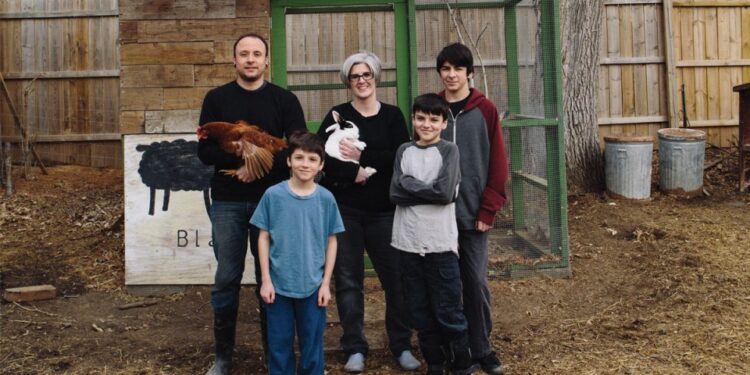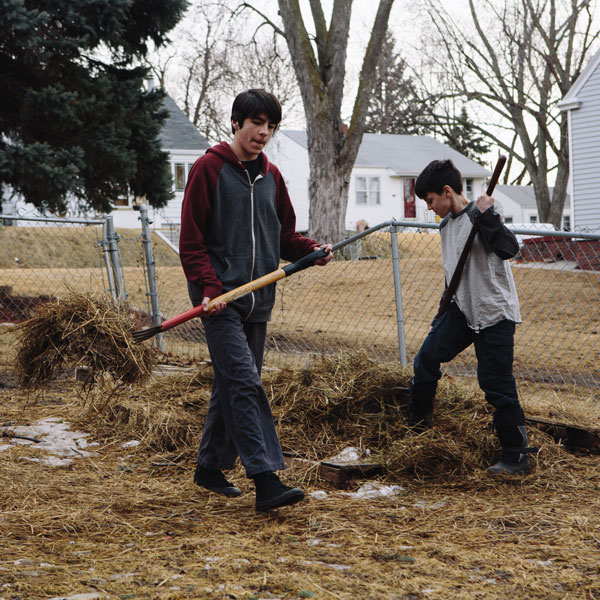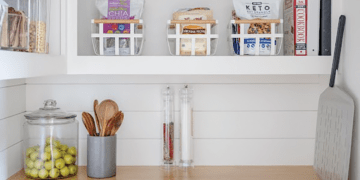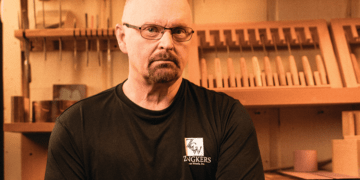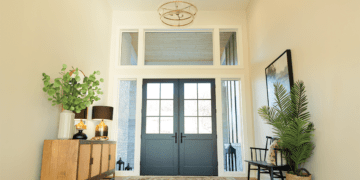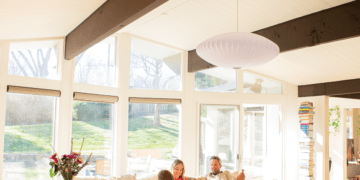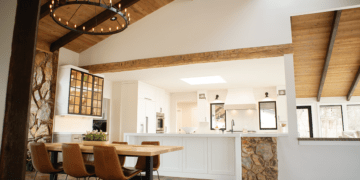For nearly twenty years, Omaha couple Brian and Kelly Smith have been learning and growing together, quite literally. The horticulture-inclined, entrepreneurial duo share a love for exploration and education through a small urban farm in Benson with their three sons.
“We’ve always been curious people who love to learn,” Kelly says. “That’s something we hope we instill in each other and in our kids.”
Kelly, a Montessori-trained educator from a family with skilled green thumbs, is the primary educator for their boys Sam (14), Jack (11), and Comet (6), as well as the digging force for most of the family’s urban farm endeavors. Brian, a community builder who discovered tea organics when his parents first opened the The Tea Smith in 2004, began to explore the science of tea and other agricultural products before introducing the interest fully to the family.
“The first time I tried farm fresh eggs, it was a life-changing experience,” Brian says about his introduction to organic food. What they were eating and where it came from fascinated both Brian and Kelly more than ever.
“Our responsibilities are to our family and to the culture of education,” Brian says. “And it begins first with taking responsibility for yourself on this planet.”
The Smiths were already tending to a small urban garden at their Benson home, but thanks to Kelly’s background in gardening and Brian’s surge in interest in organically sourced foods, the family uprooted and planted themselves in a Bennington farmstead.
When they moved from their .17-acre home to a 76-acre farm—a whopping 447 times the amount of land they started with—Brian and Kelly quickly expanded their lifestyle beyond a hobbyist interest.
The Smiths began to grow for scale, caring for chemical-free heirloom vegetables, heritage animals, and distinctive, specialty, cut flowers. They started with farmers markets and worked their way into community supported agriculture programs (CSAs) in the state. Eventually, they became a primary provider for fresh, local produce and floral arrangements for restaurants across town, including The Grey Plume.
Their farm, Black Sheep Farms, also served as the backdrop to their sons’ education, and, as Brian says, “that was the biggest and best playground they could have had.”
“Through what we were doing on the farm, our kids grew up knowing that it’s fine if you don’t know the answers,” Kelly says. “The key for us is to encourage their confidence to want to figure out thingsron their own.”
The farm offers opportunities every day for hands-on teaching moments. The Smiths found ways to incorporate farm science—everything available to them in the natural cycle of plants and animals—into their homeschooling lessons.
“When you’re working and learning side-by-side with your kids, you develop a deep relationship and understanding of their learning and working style,” Brian says.
Eventually, the Smiths opened their home and barn doors to their community as well.
“It was only a natural progression,” Kelly explains. “We wanted to share, teach, and help others learn from what we knew.” Through classes like Chicken Academy—a course designed for raising chickens in a city coop—to more basic seed-starting sessions, Kelly and Brian found that they were able to make farming relatable to others interested in the craft.
After five years of life on the farm, they’ve since settled back into their Benson home. “A farm is a good place to find out what your capabilities are,” Brian says. “It makes you accountable when you know it’s on your shoulders to pick up the slack.”
They’ve taken that approach now to consulting projects, where the Smiths help others understand the basics of organic urban planting. For now, they’re primarily growing for the family while they establish what their urban farm looks like moving forward. Part of that is figuring out what pieces of their farmstead life they’ll carry on into this new chapter for their family.
“For us, exploration is continuous,” Brian says. “Being open to new experiences has guided us through. Having us together as a duo keeps us confident. We support one another and this allows us to go for it because that’s what we love to do.”
“We want to show our kids that throughout everything—good or bad—it leads you to where you need to be,” Kelly says. “We’re absolutely where we are meant to be.”


